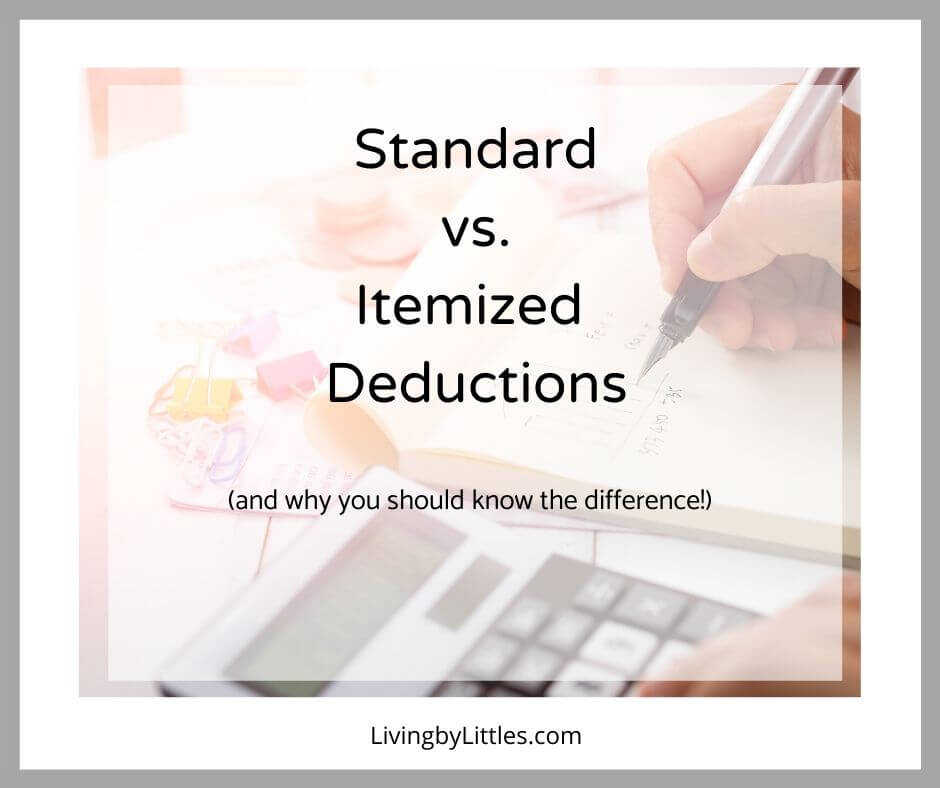Why is it important to understand the difference between taking the standard deduction and itemizing deductions?
Consider this;
A number of years ago, Brian and I received a substantial sum of cash.
Enough to significantly pay down our mortgage, which was what I wanted to do.
However, someone financially wiser than us advised us that paying down the mortgage was a bad financial decision. The reason? Mortgage interest was a deduction that could be itemized on our tax return. By paying down the mortgage we would lose a tax advantage. We were advised to invest the money instead.
Not having enough experience with taxes, we took the advice and banked the money. And spent it.
Here is the question that was not asked: “Do you itemize your deductions on your tax return?”.
To which we would have answered: “what does that mean?”
The answer was no.
The money was gone and the debt remained. What you don’t know really can hurt you.
Tax time is fast approaching.
If we, at one time, did not know the difference between types of deductions, I am going to make the assumption that there is at least one other person that would benefit from having that knowledge.
So, when talking personal taxes;
(As opposed to business taxes)
What is a standard deduction?
A standard deduction is a standard (set) amount of money deducted from your income prior to determining what you owe in income tax.
For instance, if you are single and make $18,000 dollars, the standard deduction for 2023 is $13,850 dollars. You would pay taxes on $4,150.00 dollars. (This is a very basic example meant for demonstration purpose only. For specific questions, please consult a tax professional). Although the standard deduction is a set amount, the amount is different for different groups of taxpayers (individuals, heads of households and marrieds).
What is an itemized deduction?
Itemized deductions are eligible expenses that can be claimed which decrease the amount on which you will pay taxes.
The amount differs from person to person.
Of course, one of those items is mortgage interest.
Here is the catch:
If the total of itemized deductions is less than the standard deduction, it is almost always best to use the standard deduction. (Again, please consult a tax professional for your individual circumstance)
Which was the case for us way back when. It was not to our benefit to itemize because the standard deduction gave us the bigger tax advantage.
Womp womp!
Why is it important to understand the difference between the standard deduction and itemizing deductions?
No one is more invested in your financial well-being than you.
Knowing the difference helps you to make an educated decision about what is best for your and your unique situation.
Disclaimer: I am not a tax professional and this post is not meant to be professional advice of any kind. Please consult a tax adviser to discuss your individual circumstances.
updated 01/19/2024
For a list of itemized deductions, click here to go directly to IRS form Schedule A
Related Post: Can You File Your Taxes for Free?
********************
TAKE ACTION!!!
Check out Micki’s Little Letter
Comments or questions? Email me at Micki@LivingbyLittles.com
Like It? Share It! It’s a little thing that means a lot to me!
********************

Great post!!!
Thanks! Hope it helps.